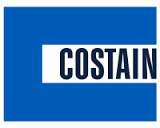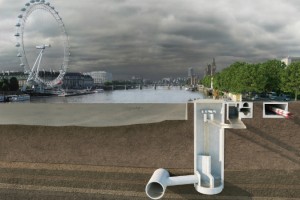Costain starts self-healing concrete site trials

The first major trial of self-healing concrete in the UK is being undertaken at a site in the South Wales Valleys.
Costain and researchers from Bath, Cambridge and Cardiff universities are piloting three separate concrete-healing technologies for the first time in real-world settings.
The pioneering trials are taking place on construction sites on the Heads of the Valleys road improvement scheme in South Wales – the A465.
Eventually the researchers hope to incorporate them into a single system that could be used to automatically repair concrete in the built environment.
It is estimated that around £40bn a year is spent in the UK on the repair and maintenance of structures, the majority of which are made from concrete.
Once damage is detected, the systems being trialled will set in motion reactions that repair the concrete autonomously without the need for human intervention.
Self-healing systems
The first technique uses shape-shifting materials, known as shape-memory polymers, to repair large cracks in concrete. When these materials are heated with a small current, they can transform into a different shape that the material has ‘memorised’. The researchers believe that these materials can be embedded into concrete and used to close cracks or make them smaller.In the second technique, researchers will pump both organic and inorganic healing agents through a network of thin tunnels in the concrete to help repair damage.In the third technique, the team will embed tiny capsules, or lightweight aggregates, containing both bacteria and healing agents into the concrete. It is anticipated that once cracks occur, these capsules will release their cargos and, in the case of the bacteria, the nutrients that will enable them to function and produce calcium carbonate, which the researchers envisage will heal the cracks in the concrete.
The researchers have cast six concrete walls at the test site, each containing the different technologies.
Over time the team will load the concrete at specific angles to induce cracks, and then monitor how effective each of the self-healing techniques is.
Oliver Teall, a civil engineer at Costain, said: “From this trial we should gain an insight into the feasibility of constructing a full-scale structure using these techniques and their early-stage effects on structural properties.
“We will be monitoring properties such as stiffness, permeability and the mechanical damage recovery of the trial walls in comparison with conventional reinforced concrete walls.”
This story is by constructionenquirer.com
Edge Careers are Construction and Engineering Recruitment Experts who pride ourselves on offering the highest level of service in the industry to all of our candidates and clients.
To become an Edge Careers candidate, please click here to register your details. If you are a client looking to fill a vacancy, please click here, or alternatively contact one of our consultants to discuss your requirements in more detail via our Contact Us page.
Follow Edge Careers on LinkedIn, Twitter and Facebook for all our latest news, exclusive competitions and events.



